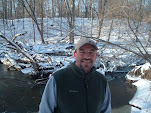“A man on foot, on horseback or on a bicycle will see more, feel more, enjoy more in one mile than the motorized tourists can in a hundred miles.” -Edward Abbey
In Desert Solitaire, a narrative by Edward Abbey, he writes that he sees the
wilderness and the parks as places that should remain as untouched an unaltered
as possible, regardless of the difficulty accessing it would be for some of the
population. His meditations on how he sees modern man and his need to move
quickly through time, getting places quickly in their cars, is solid
philosophy. At least as solid as the fluid essence of philosophy can be.
It is difficult to see him as right in his answers to the problems
that he outlines. Problems such as paving the wilderness to reach key points of interest and landmarks, often at the expense of destroying much wilderness in this process. I believe he is well intentioned, his hearts certainly in the
right place. Here is where I would recommend that you should read this book. With an open mind. Slowly, with consideration at a walking pace and not our normal barreling forward with a reckless abandon pace.
I remember when I was a young kid my own parents took me to the
Lake of the Clouds, nestled among the Porcupine Mountains in Michigan’s Upper
Peninsula. I distinctly remember a spectacular and challenging hike and climb
to reach the overview to view the vista of the lake. Many years later, I took
my own children to this spot, but instead of the long hike and climb, we drove
right to the top on a paved road, took a few constructed steps to the overview,
and there we were. I felt distinctly like someone, a traveler perhaps, whose
land no longer matched the map held in his hand, in my memory. The site was
still spectacular but my children missed the journey, a journey that was just
as much a part of the experience as the beauty of the overlook. We did see a sow black bear and her cubs cross a paved road and navigate over the steel guardrails that were installed to keep the motorists from plunging into Lake Superior. The bear sighting is memorable but the habitat we viewed it in was somewhat questionable. (We saw bears in the UP on my vacation trip as a child as well, in both natural surroundings as well as at the local U.P. dumps the bears would frequent in search of an evening snack.)
Isn't part of
life, and its experiences of the journey through time and across defined space,
worth some effort? Some sweat equity, some blisters and bruises, a case of poison ivy or insect bites would only add to the experience. Can the modern feeling I experience, that of having somehow
broken connections with nature and its multitude of perils, joys, hardships, wonder, challenges, initiative, and efforts, be reestablished?






No comments:
Post a Comment